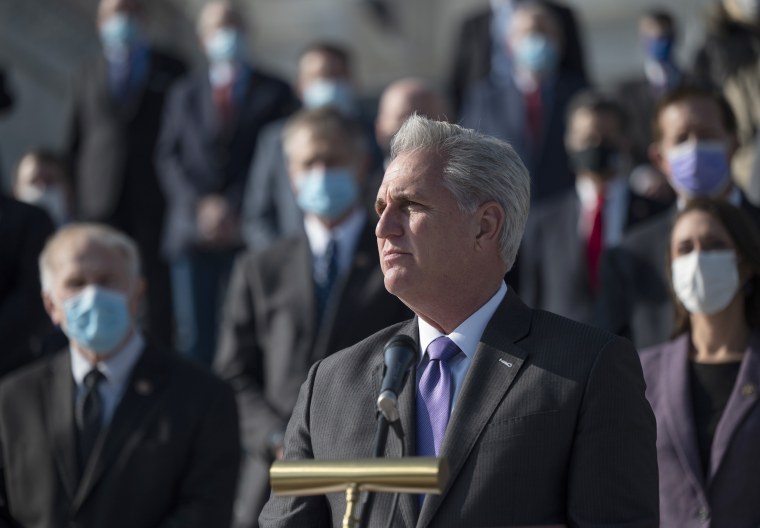Two weeks ago, House Minority Leader Kevin McCarthy (R-Calif.) helped lead the charge against Donald Trump's impeachment, though the GOP leader conceded the former president "bears responsibility" for the attack on the U.S. Capitol a week earlier.
This, naturally, infuriated Trump, who expected the California congressman to show absolute, genuflecting fealty at all times.
McCarthy soon after shifted gears, telling reporters that Trump did not actually help incite the insurrectionist riot, all evidence to the contrary notwithstanding. "I don't believe he provoked it if you listen to what he said at the rally," the House Republican leader said at a press conference.
In an interview with Gray Television's "Full Court Press With Greta Van Susteren," which aired yesterday, McCarthy apparently thought it'd be a good idea to widen the scope of responsibility.
He stood by his assertion that Trump does bear some responsibility for what happened. But, he added, so does every other person around the country. "I also think everybody across this country has some responsibility," he said.
Oh. Evidently, according to the top Republican congressman in the House, you, me, and everyone we know share at least "some responsibility" for the Jan. 6 violence.
In an apparent attempt to clarify matters, McCarthy published a Twitter thread yesterday afternoon, arguing that Americans should "help lower the temperature of our political discourse," adding that he believes media reports quoting him have been "distortions." The GOP leader concluded that "everyone" has "a role to play in disagreeing without being disagreeable."
Taken at face value, McCarthy's call for reasonable rhetoric might seem inoffensive. Who's going to complain about an official who supports "disagreeing without being disagreeable"?
The trouble is, the deadly insurrectionist attack on the U.S. Capitol on Jan. 6 had nothing to do with a meanspirited public discourse or overheated political rhetoric. The mob attacked the seat of American democracy because its members were fed a dangerous lie, and because the rioters were incited to commit acts of violence by corrupt politicians.
If McCarthy is prepared to have a conversation about who bears responsibility for the deadly violence, that's certainly a discussion worth having. But instead of calling out "everyone," it would be more constructive for the House minority leader to focus more specifically on those who led the attack, those who participated in the attack, those who encouraged the attack, and those who told the lies that led to the attack.

